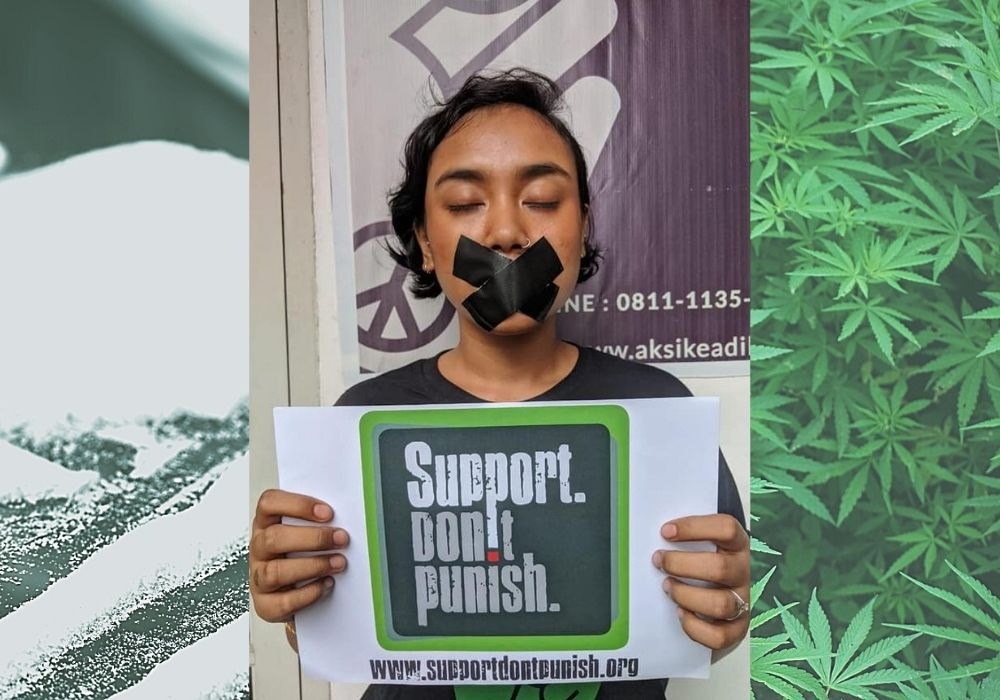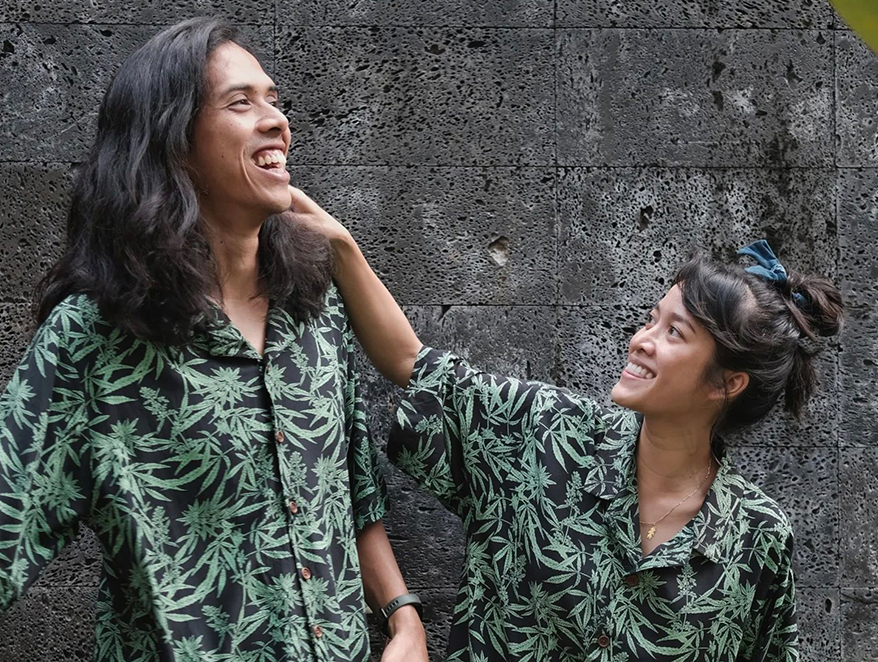THIS SUMMER, Indonesia—a country that still imposes the death penalty for drug offenses—took mammoth steps toward cannabis reform. As part of this effort, the Yayasan Sativa Nusantara Foundation (YSN) and Syiah Kuala University (USK) are partnering to research the safety and efficacy of herbal medicines prduced using native cannabis varieties.
USK’s Herbal Medicine Research Center (PRO Herbal USK) will host the research project. The school is the oldest national university in Banda Aceh, where the local Acehnese people have traditionally used the cannabis plant for food, health and wellness.
The research project is being carried out in accordance with Ministry of Health Regulation No. 16, passed in 2022, and Regulation No. 5, passed this year. If the initiative delivers results, patients may eventually gain legal access to cannabis-based medicines in Indonesia for the first time.
Until then, the largest country in Southeast Asia—where 87 percent of the population is Muslim—strictly outlaws the plant. Capital punishment is still widely used to punish drug traffickers in Indonesia, including folks who trade in cannabis—even for medicinal purposes.
Victory and Tragedy
I had a chance this summer to speak about the YSN-USK research project with Lingkar Ganja Nusantara (LGN) founder Dhira Narayana. Recognized as one of the most influential figures in Indonesian cannabis advocacy, Narayana is native to Jakarta and has led LGN for over 13 years. He also serves as chairperson of YSN, which was established in 2015.
After fighting for legalization for more than a decade, Narayana and his fellow activists are finally celebrating a huge win that could transform the future legal landscape. The victory was bittersweet, however—two critical figures in Indonesian cannabis research advocacy died during the time the YSN-USK research agreement was being negotiated.
“I had mixed feelings [after the news was announced], as I experienced both happiness and sadness simultaneously. During that period, the Indonesian Minister of Health, Mr. Budi Gunadi Sadikin, issued Health Minister Regulation No. 16 of 2022, which outlined the mechanism for medical cannabis research. Unfortunately, we faced a setback along the way when Dr. H. Musri Musman, who had been appointed as the head of PRO Herbal by USK, passed away due to illness,” Narayana told me.
USK appointed pharmacist and researcher Dr. Khairan Khairan to succeed Musman. But another key fi gure in the project also su ered an untimely death.
“Unfortunately, not even 24 hours after the signing [of the research agreement on June 24], our chairman Dr. Inang Winarso tragically passed away due to a heart attack. Within a relatively short span of time, we lost two important individuals in our shared struggle,” Narayana said.
Advertisement
The Rise of a Cannabis Fighter
Narayana attended Al-Izhar Pondok Labu for high school in Jakarta, before enrolling at the Faculty of Psychology at the University of Indonesia, Depok in 2003. Alongside his formal education, he took Permaculture Design Courses (PDCs) in 2015.
Asked about his pivotal role in Indonesia’s cannabis reform landscape, he’s humble in his response.
“My intention was simply to unite and ensure the continued struggle. Nothing more than that,” said Narayana, who noted that his parents encouraged his freedom of expression growing up.
His college years—a life-changing period of his life during which he was fi rst introduced to cannabis—provided him with the opportunity to express his freedom even further.
“I encountered cannabis users on campus, who, contrary to the stereotype of being unintelligent and lazy, were intelligent and accomplished individuals,” Narayana recounted. “I discovered that there was a lie surrounding cannabis, and I began to uncover the hidden truths about this plant one by one. This journey eventually gave birth to Hikayat Pohon Ganja, a book a team of us at LGN wrote and published in 2010.”
A Change Is Gonna Come
The cannabis plant is widely misunderstood in Indonesia—and in many more places around the world, Narayana believes. But he said he’s confi dent that the YSN-USK research collaboration could transform the opinions of even the most anti-cannabis citizens of the island nation.
The terms “medical cannabis” and “cannabis for health purposes” are now widely accepted by both the public and the government in Indonesia, but it hasn’t always been this way. According to Narayana, there were two crucial moments that drove a paradigm shift of attitudes towards medical cannabis in the country.

SPEAK OUT: An Indonesian cannabis activist protests the harsh drug laws in the Southeast Asian nation.
“First, there was the case of Fidelis [Arie Sudewarto], who treated his wife with medical cannabis in Sanggau, West Kalimantan, back in 2017,” he says. Sudewarto was convicted and sentenced to eight months in prison for growing cannabis for his cancer-stricken wife Yeni, sparking widespread public criticism of Indonesia’s harsh cannabis laws.
“Second, there were the actions of Ibu Santi and Pika during Car Free Day in Jakarta.” Santi is the mother of Pika, a child su ering weekly seizures that she and her husband believe could be alleviated with cannabis. Carrying a sign at the 2022 street protest reading “Tolong, Anakku Butuh Ganja Medis” [“Help, My Child Needs Medical Marijuana”], the Santis’ demonstration went viral in a country culturally poised to change its attitudes towards plant medicine.
Advertisement
Setting an Agenda
As they plan for a future where cannabis therapy is legalized, Narayana and his team are prioritizing herbal products, including traditional remedies and phytopharmaceuticals.
“For form factors, we’re fi rst looking at liquid products, such as Tolak Angin [a local herbal supplement], that are popular with people,” he said.
Father to a 3-year-old boy named Biru, Narayana feels that medical cannabis treatments for children should be a research priority. He describes the plant as “a medium from God to cure various diseases humans su er.” He adds: “In an emergency, I would treat my child with medical cannabis, even if it’s illegal. That’s very clear to me.”
Narayana also thinks researchers should pursue parallel tracks in developing medicinal cannabis products.
“I see medical cannabis from two perspectives, traditional and modern. Cannabis is a whole medicinal plant—it’s the fl owers, leaves, stems, seeds or a combination of them all. Cannabis extraction takes only a few active compounds [to produce medicines],” he explained.
What will a new, cannabis-friendly Indonesia look like? Narayana wants anyone in Indonesia to be able to grow cannabis in their home. He thinks household production of cannabis remedies should be legal—but that’s a ways o , he said.
“Our society is not ready for that. But for the medical cannabis industry, I’m confi dent Indonesia has turned a corner and it will happen soon.”













